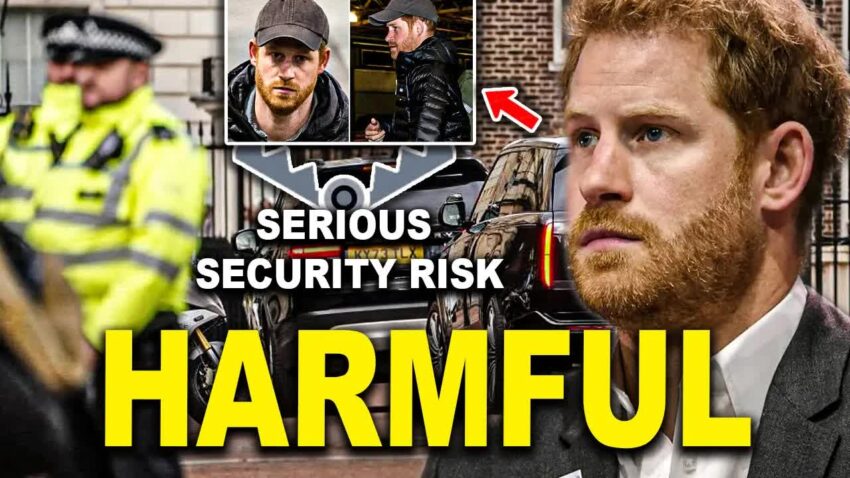News surrounding Prince Harry has once again sparked interest, particularly as reports suggest he is apprehensive about potential security threats following the leakage of his return date to the UK.
The inadvertent disclosure of Prince Harry’s appearance date at the Invictus Games’ 10th-anniversary service at St. Paul’s Cathedral on May 8th on the cathedral’s official website has raised significant security apprehensions and may jeopardize his attendance.
Sources close to Prince Harry’s team have emphasized the critical need to keep his appearance date confidential, especially in light of revelations made in his memoir, Spare, where he discussed his military experiences, including a claim of having taken down 25 Taliban fighters in Afghanistan.
Speculation has arisen suggesting that Prince Harry himself may have leaked the information to garner sympathy and potentially seek taxpayer-funded security.
Despite concerns raised by Prince Harry, some believe that the perceived security risks are exaggerated, with suggestions that the only threat he may face is a few disgruntled individuals.
Furthermore, doubts have been cast on the necessity of additional security measures, given the capabilities of British law enforcement to assess and mitigate potential risks effectively.
Questions have also emerged regarding Prince Harry’s intentions, with speculations about possible legal actions against the church or attempts to draw attention to himself.
Suggestions have been made for alternative security measures, such as altering travel plans or conducting virtual appearances instead of physical visits, to ensure safety without unnecessary risks.
Critics have pointed out Prince Harry’s past actions and decisions, questioning his motives behind seeking enhanced security arrangements at the expense of taxpayers.
Concerns have been raised about the authenticity of his claims regarding security threats and the need for heightened measures during his visit to the UK.
Amidst ongoing debates about Prince Harry’s security concerns, opinions vary on the validity of his apprehensions and the extent to which additional precautions are warranted.
Some argue that his past disclosures and public statements have contributed to the current predicament, while others emphasize the importance of prioritizing safety without undue alarm.
As discussions continue surrounding Prince Harry’s security arrangements and potential risks during his UK visit, the broader implications of his actions and statements come into focus.
The balance between personal safety, public perception, and financial responsibility remains a contentious issue, with diverging viewpoints on the appropriate course of action.
In light of the complex dynamics at play, the controversy surrounding Prince Harry’s security concerns underscores broader questions about accountability, transparency, and the interplay between personal choices and public responsibilities.
The ongoing saga surrounding his return to the UK serves as a reminder of the intricate challenges faced by public figures in navigating security threats and public scrutiny.
The unfolding developments surrounding Prince Harry’s security preparations highlight the multifaceted nature of the issue and the complexities inherent in balancing personal interests with public expectations.
As the debate continues, the ultimate resolution of these concerns will likely shape perceptions of Prince Harry and his approach to security matters in the future.
